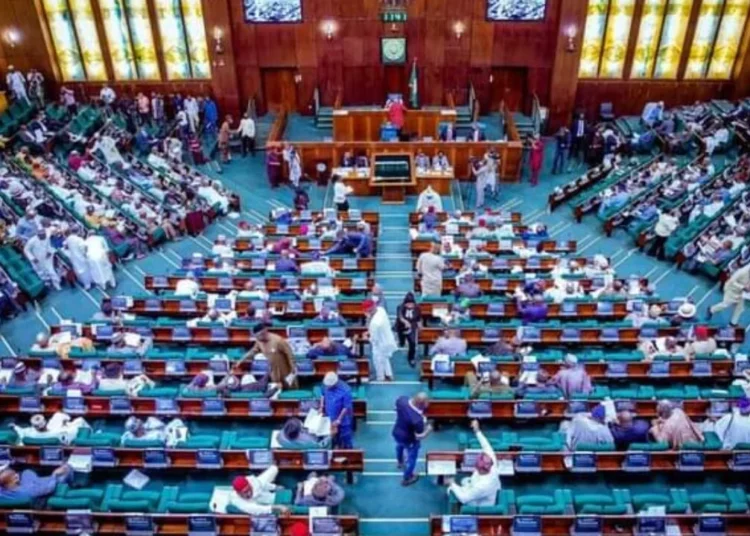House of Representatives passed through second reading, a bill to amend Section 84(8) of the Electoral Act, 2022 to allow the inclusion of statutory delegates for the nomination of political parties candidates for election.
Sponsored by Hon. Abubakar Hassan Fulata (APC, Jigawa), the proposed legislation seeks to amend the Electoral Act 2022 to make provision for delegates who, not being elected delegates, enshrined in the Constitution of a political party to participate in the Convention, Congress or meeting of the party.
It proposes that Section 84 of the principal Act be amended by deleting the existing subsection (8) and inserting a new subsection (8) after subsection (7) with stipulation that:
“A political Party that adopts the system of indirect primaries for the choice of its candidature shall clearly outline in its constitution and rules the procedure for the democratic election of delegates to vote at the convention, congress or meeting in addition to statutory delegates already prescribed in the Constitution of the party”.
Section 84 (8) states: “A political party that adopts the system of indirect primaries for the choice of its candidate shall clearly outline in its constitution and rule the procedure for democratic election of delegates to vote at the convention, congress or meeting.”
Leading the debate on the general principles of the bill, Fulata said the provision has always been part of the electoral Act, in line with the provision of the Constitution of all political parties in Nigeria, where statutory delegates are allowed to participate in primary elections to produce new leaders because of their tremendous experience.
“However, this very important section of the Electoral Act was mistakenly taken off the Act when it was last amended in 2022 by the 9th Assembly, hence the need for its reinstatement,” he noted.
Also, the bill sought the alteration of Section 51 of the Principal Act by deleting the existing subsection (2) and inserting a new subsection (2) after subsection (1) as follows:
“Where the number of votes cast at an election in any polling unit exceeds the number of accredited voters in that polling unit, the presiding Officer shall deduct the number of the excess votes across all political parties in that polling unit.”
The amendment further proposed that; “the presiding officer shall be prosecuted following the provisions of section 145 of this Act and if found guilty, shall be sentenced to a period of six months imprisonment or a fine of two million Naira or both”.
In his lead debate, the sponsor said that, as it stands, the provisions of sections 51(2) (3) and (4) seem to deliberately target legitimate election winners instead of the criminally minded individuals who connive with custodians of electoral materials to cancel their votes.
Fulata said that even if it is presumed that the individual(s) who added the votes are not known, certainly the election winner in a particular unit or his/her agents cannot be a party to a deliberate act that will invalidate their votes.
“Most of the time, candidates target the strongholds of their opponents, leveraging on the provisions of this section to add one or two votes to discredit the outcomes of the elections in those polling units to create an advantage for the losers. Thus, by deducting one or two votes from the votes of all candidates across the political parties will remain the same outcome of the electoral contest.
“Equally important is the need to punish the presiding officer who allowed himself or herself to be used to perpetrate fraud and injustice. As the custodians of electoral materials, this clause is needed for deterrence.
“I urge all honourable colleagues to support these wonderful amendments to the existing Electoral Act,” the lawmaker said.





